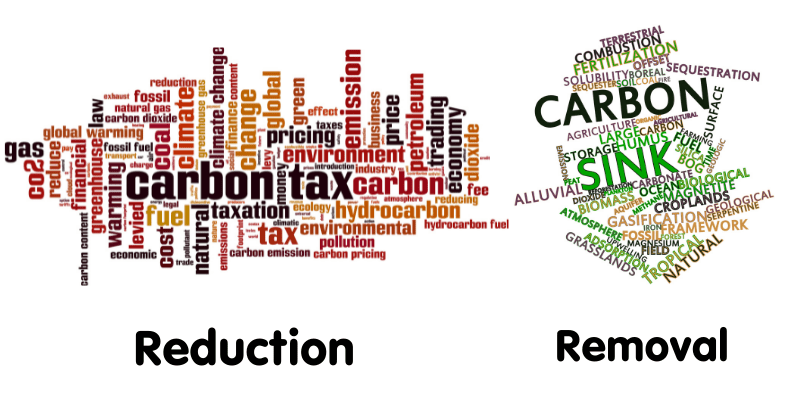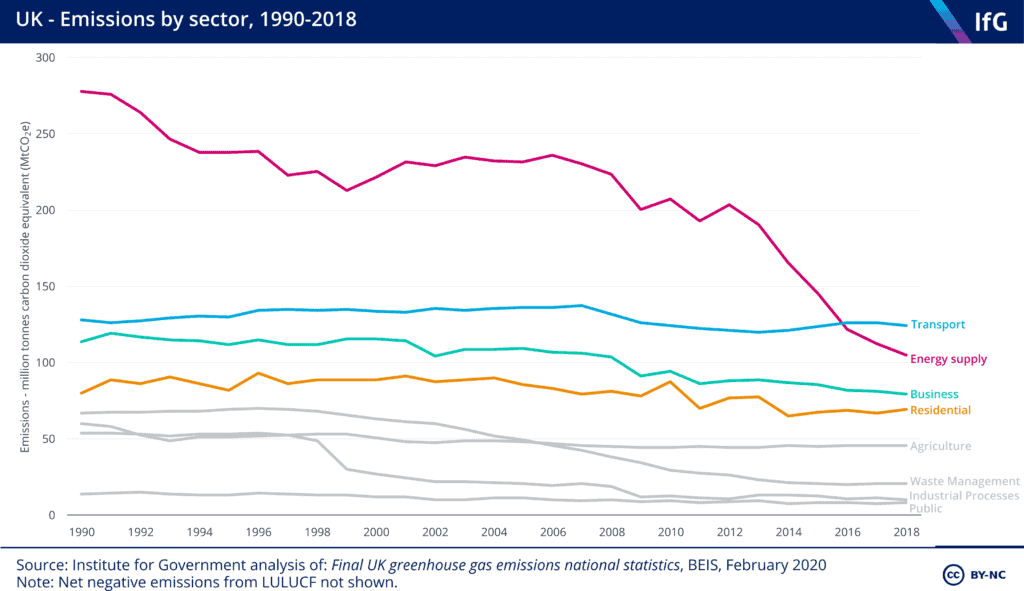What does Net Zero mean?
In short, net zero refers to achieving a balance between the amount of greenhouse gas emissions produced and the amount removed from the atmosphere.
It is a common misconception that net zero means having no carbon emissions at all, this would be totally unrealistic financially. Instead, the net zero target set by the UK Government in 2019 recognises that there will be some emissions but that these need to be fully offset, predominantly through the use of carbon sinks such as peatlands, oceans, plants and soil, and forests.
If you equate it to your weekly or monthly salary, you start with your gross pay, then things like tax, National Insurance contributions and other deductions are applied, and what you are left with is your net pay. Net zero is the same principle.
What is the UK Net Zero target?
In June 2019, parliament passed legislation requiring the government to reduce the UK’s net emissions of greenhouse gases by 100% relative to 1990 levels by 2050. Achieving this target will make the UK a ‘net zero’ emitter.
How will this be achieved?
There are two elements to achieving net zero, both of which work in tandem: reducing existing emissions and actively removing greenhouse gases. When the amount of carbon emissions produced is cancelled out by the amount removed from the atmosphere, the UK will be a net-zero emitter. The lower the emissions, the easier this becomes.

What is the importance of Net Zero?
Meeting the net zero target is crucial for the UK to fulfil commitments it made as part of the 2016 Paris Agreement to keep global warming under 2 degrees.
The government also recognises that climate change is an existential threat and that there is a moral case stemming from the UK’s history as a major producer of greenhouse gases – ref Carbon Daily Briefing 4th March 2020.
What are the main types of Greenhouse Gases (GHGs) we emit in the UK?
Carbon dioxide and methane are the most commonly known gases but there are 4 other main GHGs emitted by the UK; nitrous oxide, hydrofluorocarbons, perfluorocarbons and sulphur hexafluoride.
Carbon dioxide (CO2) is by far the biggest contributor of GHGs in the UK and is principally produced by burning fossil fuels eg in power generation. Methane, mainly produced by agriculture and waste management, is 80 times more powerful than CO2 at causing global warming over the first 20 year period after emission, but thankfully is much less prevalent in the atmosphere.
The good news is that the UK’s emissions of all greenhouse gases have been falling steadily over the past 30 years. The bad news is that global levels have risen. In 2018, UK emissions stood at 57% of their 1990 levels. A positive trend, but still a long way to go to achieving net zero by 2050.
How will achieving Net Zero affect us?
In the UK approximately 78% of current GHG emissions come from transportation, energy supply, business, and residential sectors. Think about our interaction with these sectors and it’s pretty clear that things are going to change considerably for all of us.
How our vehicles and public transport systems are powered, how we travel, how we purchase our shopping, how our energy demands are met, how we heat our homes, the way we work, even food production, all of that will change.
Decarbonising energy supply over the last 30 years has been an early win, and industry has gradually embraced greener technologies lowering emissions in that sector, but carbon emissions in transportation and residential sectors have remained worryingly static. Changes are coming in these sectors and we need to be ready!

Northern Ireland’s contribution to achieving UK Net Zero.
The Climate Change Committee which was established under the Climate Change Act 2008 as the statutory, independent and expert climate change advisors to the UK and all of the devolved governments, has suggested a target of at least an 82% reduction in net greenhouse gas emissions for Northern Ireland by 2050.
Are we on track to meet the Net Zero target?
As it stands no we aren’t. If things remain as they are the UK won’t even meet the previous target of an 80% reduction in emissions by 2050.
This is why COP26 (UN Climate Change Conference) is vitally important for the UK as hosts. Even though the UK produces less than 1% of global CO2 emissions, by showing there is a roadmap to net zero we can set an example for other countries to follow. The summit will take place in Glasgow from 31 October – 12 November 2021. The event will see global leaders coming together to discuss climate change and to agree actions to tackle the issue.

Make the change today!
Why not start your journey towards a greener lifestyle and help the UK meet its net zero target by taking a pledge to reduce your carbon footprint.



